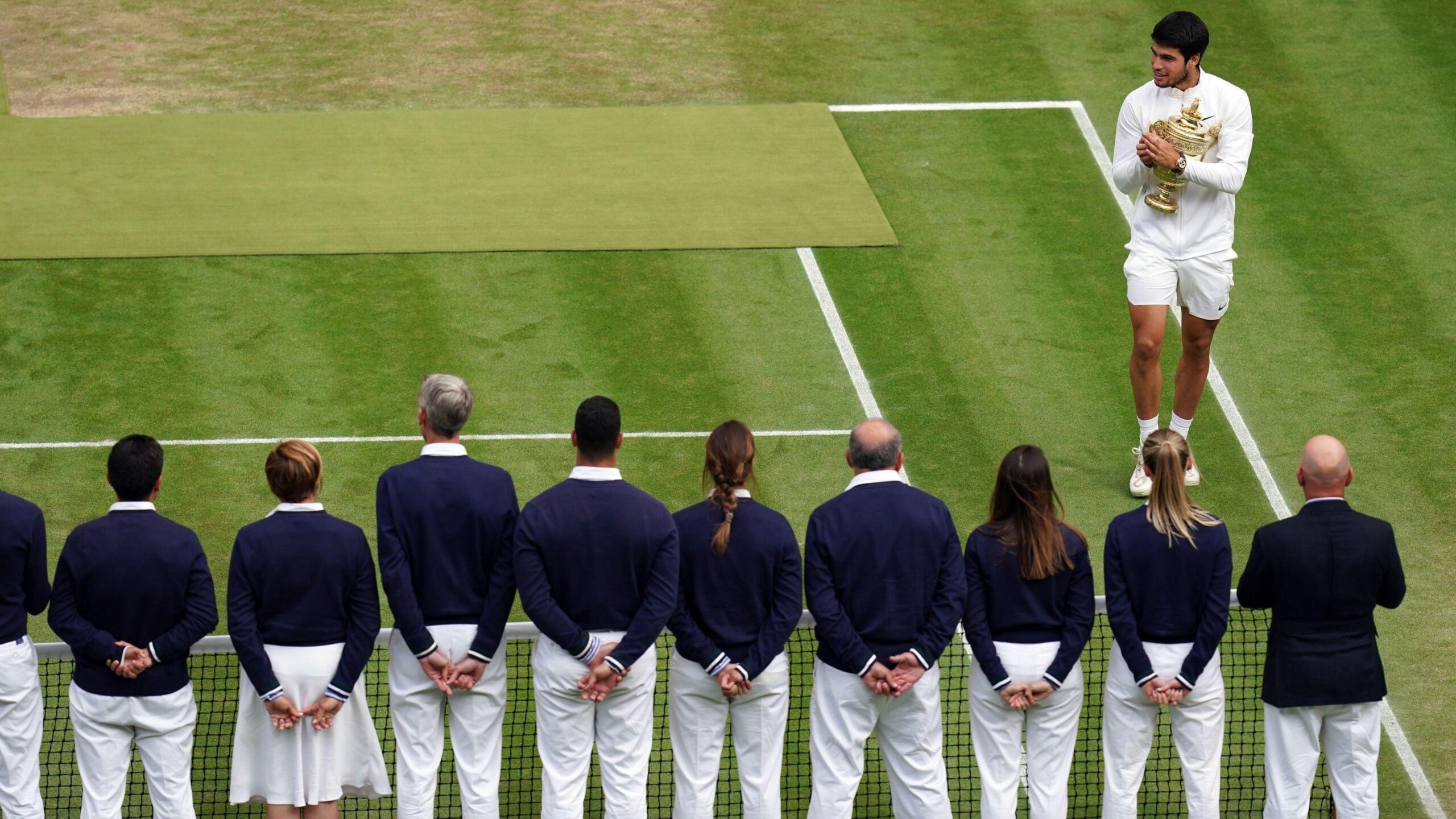In order to reach the knockout stages of the Club World Cup, Chelsea have fought through extreme heat, weather warnings, and made four debuts.
The Blues have so far made an estimated £28 million, and they will soon make up the £30 million fee Liam Delap’s Ipswich signing for the club, which was earlier this month.
In addition to defender Mamadou Sarr, the new striker has made his debut in the competition with a goal and an assist in his first three games for the club on US soil.
Chelsea also lost 3-1 to Brazilian giants Flamengo in a tactical experiment, according to manager Enzo Maresca.
Los Angeles FC and ES Tunis, who are weaker in Group D, were held to a comfortable victory.
Chelsea will face Portuguese side Benfica, who defeated Bayern Munich 1-0 in their final group game.
Impressive Delap and Neto
Delap, who signed from Ipswich before the tournament, did a stellar job in the opening game against LAFC. His chipped cross helped the club score Enzo Fernandez’s second goal in a 2-0 victory.
The striker struggled to make an impact in his final Group D appearance against Flamengo, but he did so in the final game for Chelsea.
Delap’s skillful touch and spin allowed him to cut inside and fire past goalkeeper Bechir Ben Said.
We needed to win, and it’s a great feeling, Delap said, “and to get a goal is a special feeling.”
Maresca continued, “We anticipated a quick turn-around for Liam because we already know him and he knows our game.”
He had three clear chances to score goals against Flamengo. That already makes him feel good because it indicates that he is in the right frame of mind.
In both of his first two games, winger Pedro Neto scored with quick, powerful dribbles.
Jackson’s red and Brazilian opposition

After a disastrous six-minute collapse, where Jackson was forced to take the field after a subpar 3-1 defeat to Flamengo’s Lucas Ayrton, goals from Bruno Henrique and Danilo, cancelled out Neto’s early strike.
The 24-year-old, who was only on the field four minutes after replacing Delap, had already opened the door for his rival to begin the final group game due to his suspension.
Jackson will miss the final-16 tie against Benfica because he was later given a new match ban by world governing body Fifa.
Flamengo’s victory over Chelsea was deemed a “wake-up call” about the opposition level in South America, which enters the Club World Cup in the middle of the season, according to one source.
Logistics and heat are two factors.
After booking a base at Philadelphia Union’s Subaru Park stadium and training ground, Chelsea have the unfortunate experience of unseasonably warm weather.
It is “impossible” to train in temperatures of 40C, which are the highest temperature in the area in 13 years, according to Manager Maresca.
Chelsea have conducted “very brief” training sessions with giant fans spraying cold water and drinks breaks after each drill because there have been health warnings for vigorous physical outdoor activity.
What kind of revenue has Chelsea generated?
Before the Club World Cup, Chelsea qualified for the Champions League, which is worth between £80 million and £100 million and should result in a new lucrative front-of-shirt sponsorship deal.
Given that the Club World Cup is the most lucrative competition in club football per match, according to Fifa, they are on to a double windfall.
The Blues qualified for the tournament with just under $ 38 million (£28 million).
They defeated LAFC and ES Tunis to claim an additional $2 million for each victory in the group stage. In the round of 16, they will also be able to make $7.5 million, which will increase their total to $49.50.
There are additional offers of $ 31 million for quarter-final, $ 21 million for semi-final, and $ 30 million for final entry. The winner will receive an additional $ 40 million.
What are the fans’ opinions?
What about the fans, though, given that the bank balance has improved so far? 32, 967 people showed up for Chelsea’s final group game at the 67, 000-capacity Lincoln Financial Field.
One of them, Bharat from the Philadelphia Blues, told BBC Sport, “I haven’t had any complaints about the organization.
“I get some of the complaints about the player’s welfare,” I said. It will be interesting to see if they make any adjustments as they prepare for the World Cup in 2015’s dry run.
Cathy, a British Chelsea fan, hasn’t missed a game away from home for 47 years and was one of the few to travel to the US to continue her run.
She claimed that the competition’s quality and pricing are “overly high.”
It has only been watched by fans of the competition’s participating teams, which is Fifa’s own goal.
For the game against Benfica, the club has revealed that the club’s fans can purchase 500 lower tier tickets for $ 153 and 466 value tier tickets for $ 35 respectively.
related subjects
- Chelsea
- Premier League
- Football


